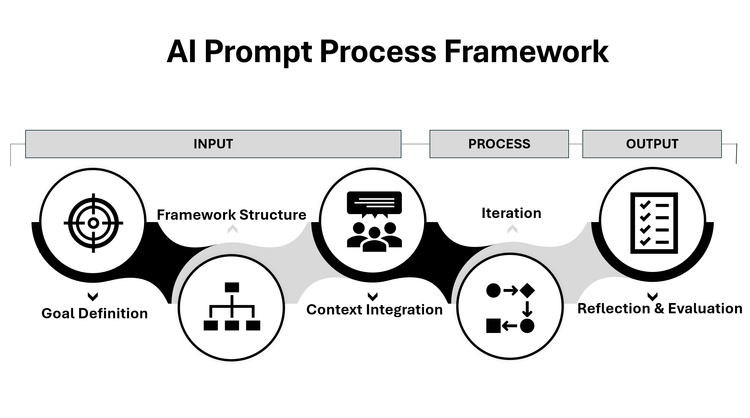From Consulting to Tech: Why an MBA was A Strategic Pivot Point

After nearly four years in consulting, I found myself at a natural inflection point in my career. The experience had been invaluable—I had gained exposure to complex problem-solving across industries, led cross-functional initiatives, and refined my analytical thinking. But over time, I felt a growing desire for something more structured and business-driven—particularly within the technology sector. I wanted to move beyond offering strategic recommendations and instead be part of the execution engine, driving business outcomes from within. That’s when pursuing an MBA began to make strategic sense.
The MBA as a Launchpad
The MBA provided precisely what I needed: a structured, immersive experience that enabled me to pivot into the business side of big tech. Beyond academic rigor, it offered business fluency, a global network, and the confidence to navigate a new professional landscape. More than just a credential, it became a launchpad for transformation.
Is a Master’s Degree a Way to “Settle” or “Set You in Motion”?
There’s a prevailing notion that a master’s degree helps “settle” one’s career—to reinforce an existing trajectory and deepen expertise in a chosen field. This is often true. After several years of work experience, professionals typically develop functional depth, which naturally leads them to pursue further specialization. In such cases, a master’s degree serves to sharpen focus, unlock senior roles, and reinforce existing career paths. This is particularly common for individuals who remain within the business ecosystem. With an undergraduate degree in a business-related discipline, one might transition fluidly across functions like strategy, operations, finance, or marketing. These transitions are generally incremental, requiring moderate upskilling and lateral knowledge acquisition.
So Why Do People from Non-Business Backgrounds Choose an MBA?
More intriguing is the growing number of professionals from non-business backgrounds—engineers, lawyers, scientists, designers—who are choosing the MBA as a pivot point. For them, the degree is not about deepening existing expertise but about reframing professional identity and retooling for a fundamentally different career trajectory. This idea forms the basis of my upcoming audio series, which will explore how and why individuals from diverse origins use the MBA to facilitate career reinvention.
What Makes the MBA a Powerful Pivot Tool?
The MBA is uniquely positioned to support professional pivots due to several key attributes:
1. A Generalist Foundation
Unlike specialized master’s programs that narrow focus, the MBA offers broad exposure across core business functions—finance, marketing, operations, strategy, and leadership. This generalist curriculum equips individuals from non-business backgrounds with a foundational understanding of how organizations operate.
2. Cross-Functional Thinking
Modern business challenges do not exist in silos. MBA programs train students to think systemically—connecting dots between product development, financial models, market forces, and human behavior. This integrated perspective is invaluable in leadership roles and high-impact decision-making.
3. Real-World Application
MBA programs emphasize active learning through case studies, internships, simulations, and collaborative projects. This bridges the gap between theory and practice, allowing students to apply concepts in realistic settings and adapt to real-time feedback.
4. Career Switch Enablement
The MBA ecosystem is designed to support career transitions. From career coaching and industry treks to networking events and on-campus recruiting, the infrastructure helps students reposition themselves in new industries or functions. For those moving from consulting to product management, or from engineering to private equity, this ecosystem is instrumental.
5. Leadership and Interpersonal Development
Success in business is not just about technical acumen—it’s about influence, communication, and leadership. MBA programs emphasize soft skills that are essential for managing teams, navigating complexity, and driving change.
6. Access to a Global, High-Caliber Network
An often underappreciated benefit of the MBA is the peer network it fosters. These are future CEOs, founders, investors, and changemakers. The relationships built during the program often translate into long-term collaborations, mentorships, and career opportunities.
The Bigger Question: Why Do People Really Pivot?
While the structure and benefits of the MBA are well-established, a deeper question persists: Why do individuals make such drastic career pivots in the first place? Why would a corporate lawyer become a venture capitalist? Why would an aerospace engineer transition into strategy consulting? The answers are complex—and deeply personal.
In my forthcoming audio series, I will explore the motivations, decisions, and challenges behind these transitions. I’ll feature stories from professionals who made the leap—what triggered their decision, how they managed uncertainty, and what life looked like on the other side.
For some, the pivot is driven by a search for meaning. For others, it’s a desire for accelerated growth, greater leverage, or long-term impact. Whatever the reason, the common thread is intentional transformation—and that’s a story worth telling.
Final Thoughts
An MBA is more than a degree. For many, it is a strategic tool for reinvention—a platform to step beyond comfort zones and embrace new possibilities. Whether you’re deepening expertise or pivoting entirely, the value of the MBA lies in its ability to both clarify and amplify your professional ambitions. If you’re contemplating a career switch—or just curious about how others have made theirs—I invite you to follow along with the audio series. These are not just career changes. They are stories of transformation.





Member discussion